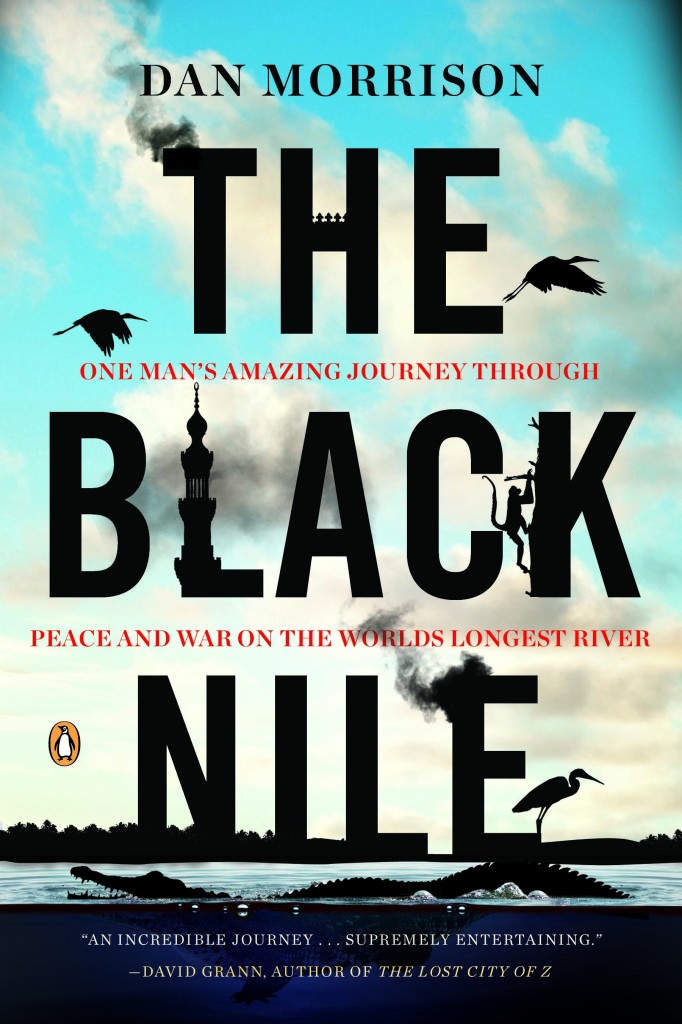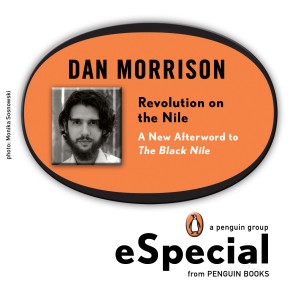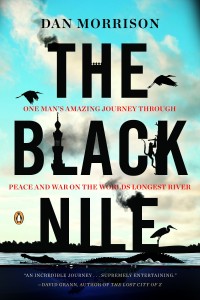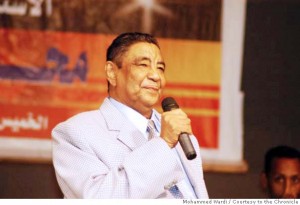 From a “nomad who pursues every form of transportation imaginable to follow Africa’s longest river,” The Black Nile is “an evocative piece of reporting…a portrait of a fractured country just one spark away from a renewal of hostilities.” –Joshua Hammer, The New York Times Sunday Book Review
From a “nomad who pursues every form of transportation imaginable to follow Africa’s longest river,” The Black Nile is “an evocative piece of reporting…a portrait of a fractured country just one spark away from a renewal of hostilities.” –Joshua Hammer, The New York Times Sunday Book Review
Beautifully written. A masterful narrative of investigative reportage, travel writing, and contemporary history. . . . The Black Nile is all at once thrilling, sad, and—most of all—thoughtful. —The Daily Beast
Dan Morrison takes the reader on an incredible journey in The Black Nile. Weaving together intense travel writing and history, he has produced a supremely entertaining work, and also an important one. —David Grann, author of The Lost City of Z
Part On the Road, part Fear and Loathing in Africa, Dan Morrison takes us with him on his journey down the Nile–teaching us, by example, to be explorers of both the world and ourselves. —Kevin Sites, author of In the Hot Zone: One Man, One Year, Twenty Wars




 Travel writer
Travel writer  In my latest piece on the National Geographic website, members of a tiny Indian hill tribe insist their distinct language is no different from that of their neighbors — and the bigger tribe agrees. In reality, the tongues are as different as English and Hindi.
In my latest piece on the National Geographic website, members of a tiny Indian hill tribe insist their distinct language is no different from that of their neighbors — and the bigger tribe agrees. In reality, the tongues are as different as English and Hindi. Travel guide author Steve Waters, writing at the Lonely Planet website,
Travel guide author Steve Waters, writing at the Lonely Planet website, 
 * “A masterful narrative of investigative reportage, travel writing, and contemporary history.” –
* “A masterful narrative of investigative reportage, travel writing, and contemporary history.” –  * The Black Nile “combines wit with deep reporting…Getting in and out of dangerous locations is clearly Morrison’s forte.” –
* The Black Nile “combines wit with deep reporting…Getting in and out of dangerous locations is clearly Morrison’s forte.” –  * The Black Nile “avoids the evangelical zeal and naïve prescriptions other Africa books fall victim to . . . Morrison teeters dangerously close to gunfights, disease, and run-ins with the authorities while relying on former rebels, proto-entrepreneurs, and crooked bureaucrats to get him through.” –
* The Black Nile “avoids the evangelical zeal and naïve prescriptions other Africa books fall victim to . . . Morrison teeters dangerously close to gunfights, disease, and run-ins with the authorities while relying on former rebels, proto-entrepreneurs, and crooked bureaucrats to get him through.” –  * “Adventure is only half the story in this marvelous book, and maybe the lesser half…A beautifully-written tale of an American on a journey to find out who else is out there, what they’re thinking, why they do what they do, and hey, check out that sunset with the cranes flying low across the horizon.” – Tom Robbins,
* “Adventure is only half the story in this marvelous book, and maybe the lesser half…A beautifully-written tale of an American on a journey to find out who else is out there, what they’re thinking, why they do what they do, and hey, check out that sunset with the cranes flying low across the horizon.” – Tom Robbins,  * “There’s enough grist in this excellent travelogue to craft a dozen killer Microkhan posts.” – Brendan Koerner,
* “There’s enough grist in this excellent travelogue to craft a dozen killer Microkhan posts.” – Brendan Koerner,  * “If you’re weary of cliched newsbites, misery memoirs and exoticised adventurism, and want more insight than disaster reporting or parched analyses can offer, this is a refreshing relief.” – Peter Verney, Sudan Update
* “If you’re weary of cliched newsbites, misery memoirs and exoticised adventurism, and want more insight than disaster reporting or parched analyses can offer, this is a refreshing relief.” – Peter Verney, Sudan Update